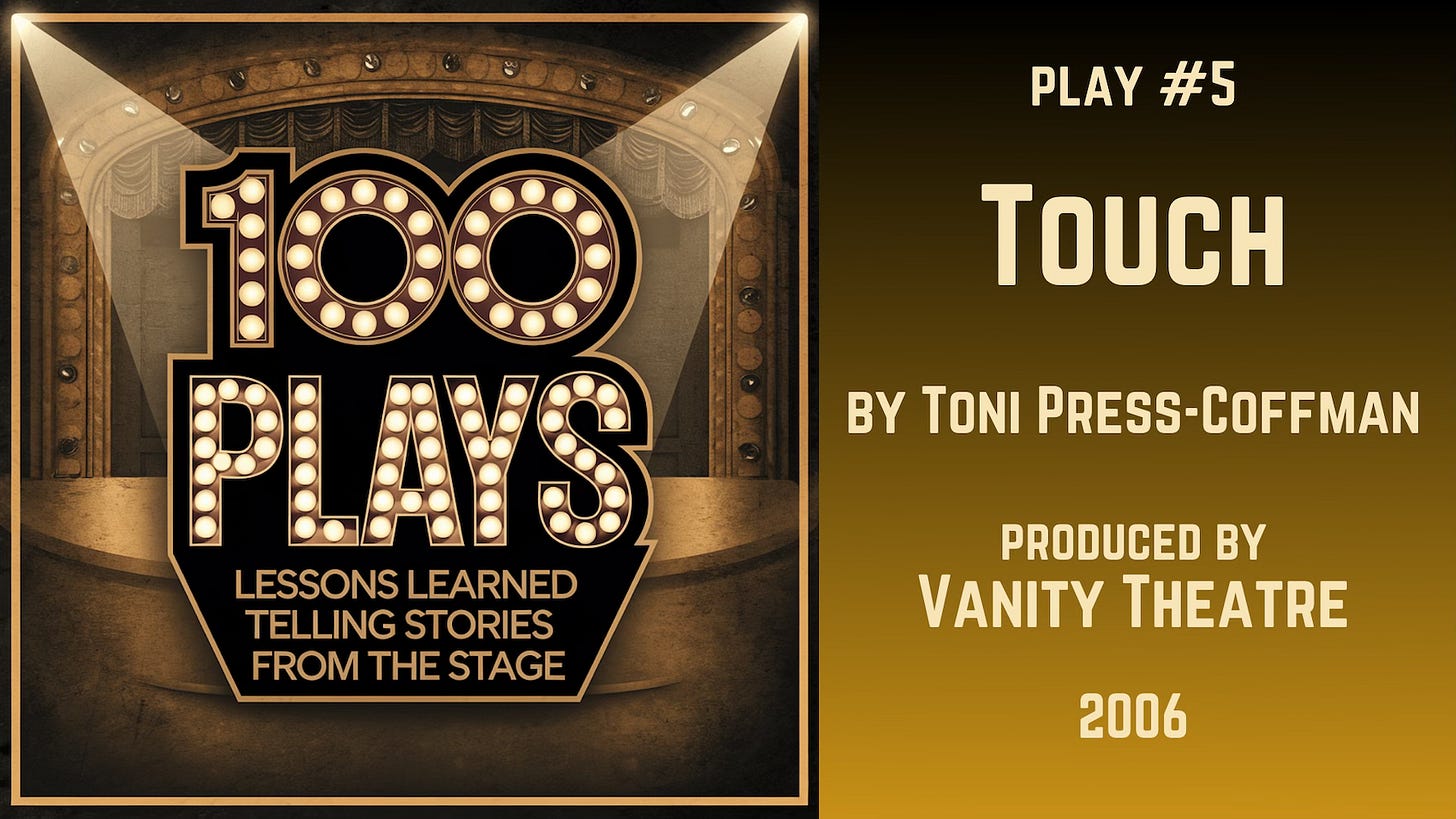When you release your story into the wild...
Tips, tricks, inspiration, and encouragement for storytellers of all stripes
Greetings from Sarasota—
That’s right, after galavanting around to Minnesota and Riverview and Ft. Carson the last few weeks, I’m finally writing to you from my home studio/“cloffice” in hot-getting-hotter SRQ.
For the uninitiated, a cloffice is a closet converted into an office. Pull the curtain and it disappears! Magic!
It works great, but I do dare dream of the day I can expand my studio into a different kind of magic. Like—
Anyhow, today I kicked off my newest session of Storyteller’s Bootcamp class at ACE (Adult & Community Enrichment). And as we discussed stories and writing tips, a couple ideas came up I thought worth sharing here.
A couple weeks back—when I was in Minnesota—I wrote about your story being like the Mississippi River. How it has to flow, evolve, adapt.
But that evolution doesn’t end when you hit “publish.” Nope. Your story continues to evolve because the moment you tell it… it is no longer yours.
See, you cannot control what a reader does with your story. You cannot control how the listener interprets it.
The receiver of your story gets to have their own relationship with it, and you have zero say.
Reader A may consume your entire story in one sitting. Reader B may take a few months. Reader C may read it late at night under the covers. Reader D may read a couple chapters on the beach, in between dips in the water and cracking Coronas. Reader E might re-read your story multiple times. Reader F may go, “Meh, not for me,” and not finish it even a first time.
Listener A may have just gotten important news before you began to speak. Listener B might have a tickle or itch they can’t reach. Listener C may not be a native speaker of your language. Listener D might have been the one who booked you for the gig and is watching the audience’s reaction rather than listening to you. Listener E might’ve pulled an all-nighter on a project and is running on fumes and coffee. Listener F might’ve read your published story and come in with expectations, high or low.
None of this is in your control. When you release your story into the wild, it evolves—even mutates—in ways you cannot anticipate.
There’s no point ranting and raving and bemoaning your fate. Because that evolution is the whole dang point. The more you try to control your story, the less impact it will have on anyone.
And even if you could make every reader read your story at the exact same time in the exact same place at the exact same page-turning rate, and even if every listener was perfectly rested and perfectly behaved and looking up at you with big, wide eyes, guess what?
You STILL can’t control what your story means to them.
Because in both cases—readers and listeners—they will receive your story autobiographically.
In class today I used this example. I told the story of my first kiss. I was a sophomore in college. She was a freshman. Her name was Erin. She had curly hair. We were on the couch in the lobby of her dorm. As our lips came together, my hand, which was pressing gently on her back, began to shudder like a dryer full of bricks. It was my first kiss! Mind you, it wasn’t hers, she’d had a high school boyfriend. She pulled back, a quirky little grin on her freshly first-kissed mouth, and said with a hint of humor and a double hint of wonder, “You’re trembling.” No use denying it. “Yes I am,” I replied. She half-snorted, and came back in.
Now here’s the thing. First kisses are ordinary. They’re a dime a dozen. They happen thousands if not tens of thousands of times across the world every day. Frankly, there is nothing unique or special about them. They are commonplace.
EXCEPT—
For the two people involved in that first kiss? Holy hold your hand still, Batman! It is extraordinary. World-altering. Mind-blowing. In some cases I suppose they might be disappointing, but such was not my experience, thankfully.
Now, think back a few seconds. As I was telling my story, where did your mind go? I bet many if not most if not all of you recalled images and perhaps even sensed feelings bubbling up. Images and feelings from YOUR first kiss. The person. The location. The circumstances. All unique to you.
We receive stories autobiographically. We filter what we read and hear through our own experience. That is why stories are such powerful tools of connection and healing. By making myself vulnerable, I convince you to lower your shields.
Your story is an offering.
What the readers and listeners choose to do with it?
Entirely up to them.
Your Faithful Reader
So here’s a short-notice bonus.
You may remember poet Marc Johnson from my earlier mentions of his books and events. You can check out his poetry and credits at his website, MarcDJohnsonJr.com.
Tomorrow—that is May 24—at 7pm Eastern, Marc is performing in an event called Your Faithful Reader at this hip joint in New York called Caveat.
Caveat is a cabaret comedy theater located deep under Clinton Street. They champion nerdy, funny art – and sell cheap drinks.
Your Faithful Reader combines storytelling, theatre, and dance. It sounds pretty friggin’ cool.
But if, like me, you can’t get up to Clinton Street by tomorrow, you can watch via livestream for ten bucks!
Click the purple button to learn more about Caveat, Your Faithful Reader, and to snag a livestream ticket.
Break a leg, Marc!
100 Plays
The next episode of 100 PLAYS will hit your inboxes first thing Monday!
In this episode, I talk confronting stage fright, embracing fear as a creative force, and memorizing long monologues via cassette tape.
You can listen on the Substack App, and all episodes are also available on Apple or Spotify.
Or, if you want to put a face with a voice, the video version will be available on YouTube.
The Page&Stage Podcast
In case you missed it, here’s the newest episode of the Page&Stage Podcast from earlier this week.
Legendary Broadway producer Albert Poland shares his journey from a young fan of Judy Garland to a prominent figure in the theater world. He discusses his transition from performing to producing, the evolution of Off-Broadway, and the importance of storytelling in theater. Poland reflects on his memoir, STAGES, and the process of writing it, as well as his experiences managing productions and collaborating with talented artists. He offers insights into the art of general management and shares anecdotes from his career, emphasizing the significance of passion in the performing arts.
You can listen on the Substack App, and all episodes are also available on Apple or Spotify.
Or, if you want to put faces with voices, you can watch the video version of this podcast over on YouTube.
Thanks as always for reading, and have a great weekend!
Jason “Can I Order a Cheap Drink Over Livestream?” Cannon




